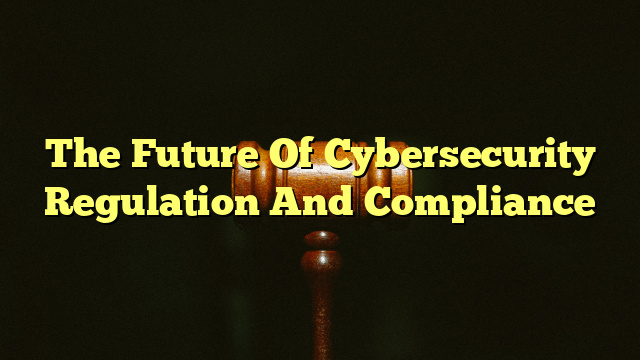Table of Contents
- Current Cybersecurity Regulation
- The Future of Cybersecurity
- The Importance of Compliance
- Cybersecurity Regulation 2023
Current Cybersecurity Regulation
Currently, the majority of cybersecurity regulation is focused on organizations in the private sector. This includes organizations of all sizes, ranging from small businesses to large corporations. The regulations are designed to ensure that these organizations have the proper systems in place to protect their data and networks from threats. These regulations vary from country to country and can include requirements for training, encryption, and other protective measures.
The Future of Cybersecurity
As technology continues to evolve, the need for cybersecurity regulation will become even more important. In the future, we can expect to see more regulations that are focused on the public sector, such as government agencies and other public organizations. These regulations will be designed to ensure that all public organizations have the necessary measures in place to protect their data and networks from threats. Additionally, there will be an increased focus on the security of digital identities, as well as more sophisticated methods of authentication.
The Importance of Compliance
It is important for organizations to understand the importance of compliance when it comes to cybersecurity. Compliance is an essential factor in developing and maintaining secure systems. Organizations that fail to comply with cybersecurity regulations can face severe penalties, including fines and other sanctions. Additionally, organizations that do not comply with regulations may find themselves at a competitive disadvantage, as their competitors may be able to take advantage of the more stringent regulations.
Cybersecurity Regulation 2023
The future of cybersecurity regulation is uncertain, but there are some predictions about what we can expect to see in 2023. There is likely to be an increased emphasis on the need for organizations to protect their data and networks from cyber threats. Additionally, there will likely be additional regulations that focus on the security of digital identities and authentication. Finally, organizations will be required to implement more stringent measures to ensure the security of their systems.
The future of cybersecurity regulation and compliance is uncertain, but it is clear that the need for secure systems is only going to increase in the future. Organizations that fail to comply with regulations may find themselves at a competitive disadvantage and could face severe penalties. It is important for organizations to understand the importance of compliance and to ensure that they have the necessary systems in place to protect their data and networks.

